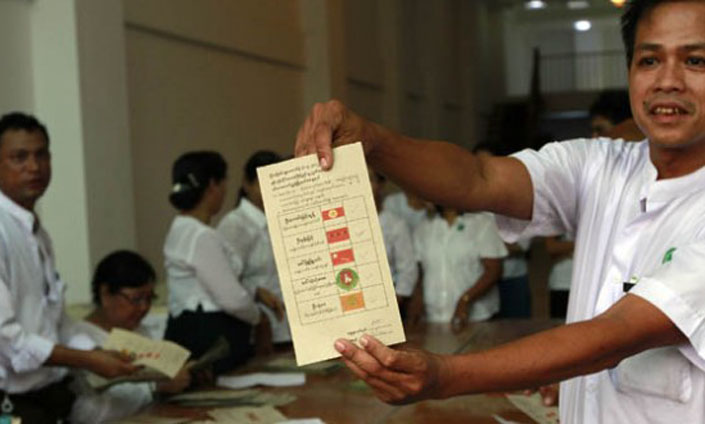The New Configuration of Power
Burma’s 8 November 2015 general elections—won in a landslide by the opposition National League for Democracy (NLD), led by Nobel laureate Aung San Suu Kyi—have ushered in the second phase of the country’s political transition. The NLD won 390 (79.4 percent) of the 491 (due to the cancellation of seven townships) total elected seats in both houses of the Union Parliament. The party’s triumph represents a
crushing defeat of the incumbent, military-backed Union Solidarity and Development Party (USDP).
Soon after the election results were announced, USDP and military elites signaled their acceptance of the NLD’s victory, and a joint eightmember transition committee was set up to prepare for a smooth transfer of power on 30 March 2016. So after five decades of authoritarian rule, political succession will for the first time be conducted according to formal constitutional provisions. The ruling elite’s decision to abide by the
election outcome shows that the country’s emerging institutions—the constitution, parliament, and the party and election systems that were activated only during the political opening in 2010—have the power and capacity to produce real political change despite their obvious democratic deficits.

